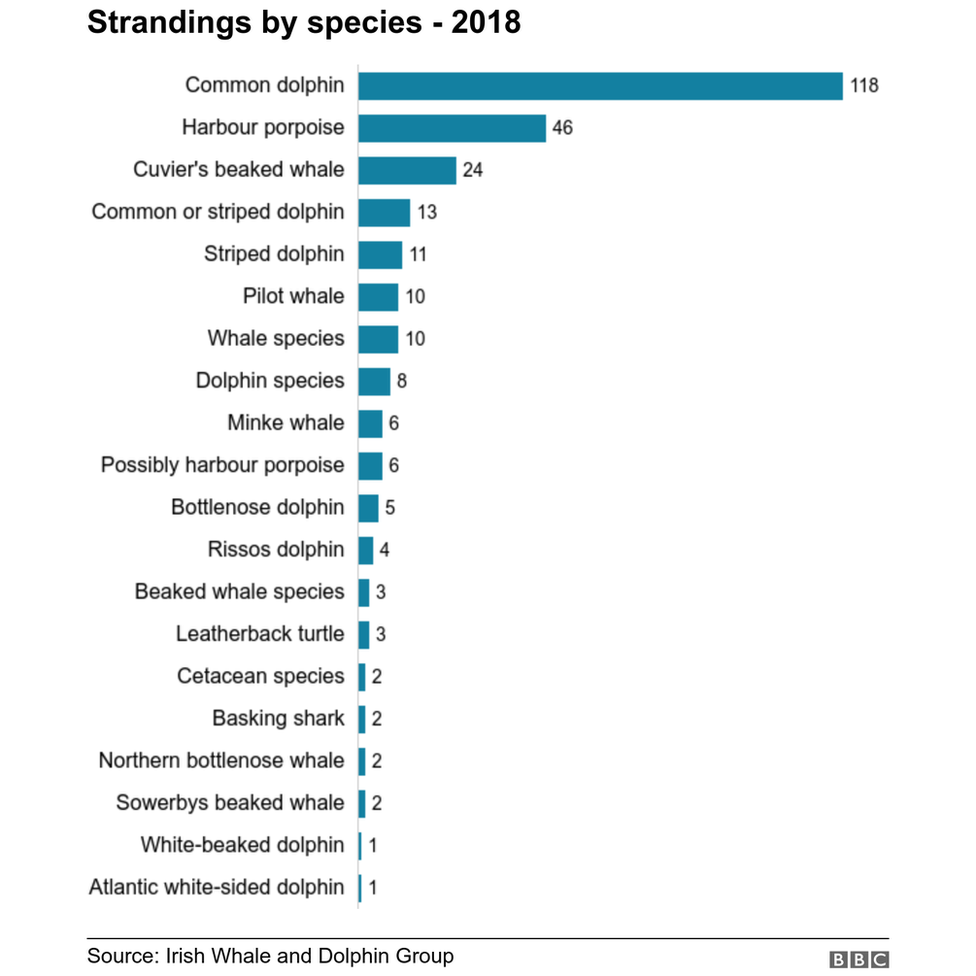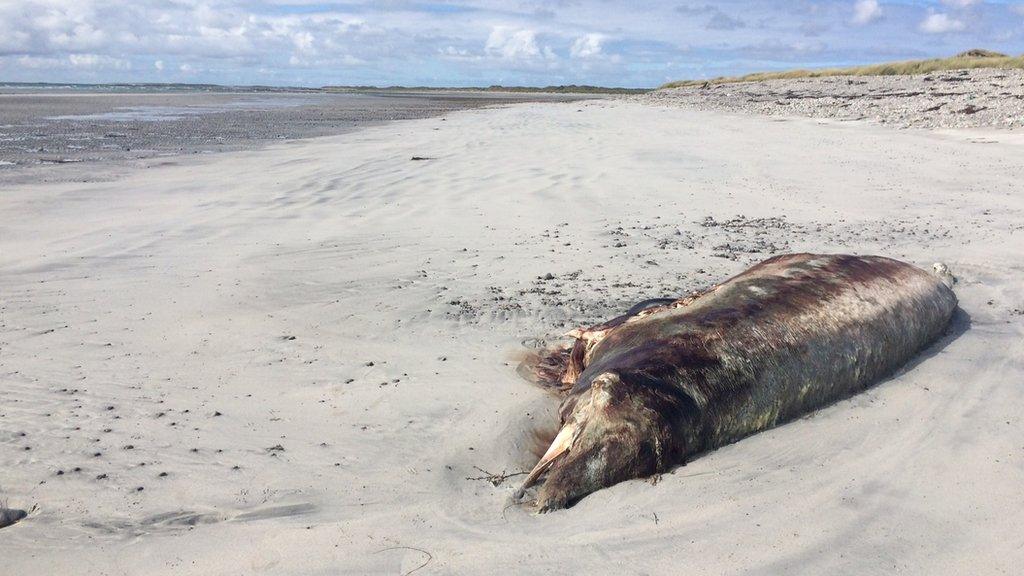Irish whale strandings reach record numbers
- Published

The number of whale and dolphin strandings along the Irish coastline reached a record high in 2018.
A total of 248 strandings were reported in 12 months, according to data from the Irish Whale and Dolphin Group (IWDG).
It is the highest annual total recorded since IWDG was established in 1990, and includes 24 Cuvier's beaked whale strandings.
The group said there were a number of possible causes for the increase.
"The stranding scheme identifies trends and unusual events, but what causes them is still speculative," said Dr Simon Berrow, IWDG chief executive.

Strandings of 12 cetacean species were reported last year and included more than 100 common dolphins and over 40 harbour porpoises.
Among the most notable incidents was the washing ashore of five deep-diving Cuvier's beaked whales in a single day in August.
At the time, there was speculation that increased naval sonar activity may have been to blame.
Dr Berrow said he believed naval exercises remained the most likely cause of the Cuvier's whale deaths. Animals were also washed ashore on the coast of Scotland.
A UK government-led investigation is ongoing.
A total of 24 Cuvier's whales were washed ashore in 2018 - 20 of those in the months of August and September.
IWDG recorded three Cuvier's whale strandings in the whole of the previous year, and only one in 2016.

Gareth Doherty, IWDG co-ordinator for County Donegal, said there were a lot of things going against these animals.
Warning: Graphic image below
He said there had been more than 60 strandings since the start of 2019.
"The possible causes are endless, but in the majority of cases where these animals are washing ashore, their deaths are unnatural.
"If it is not over fishing, or seismic surveys, it's pollution that leads to a breakdown of their immune system."
He added: "A lot of animals that come ashore are emaciated and badly under-nourished.
"These animals have a right to be here, in our waters, it is their domain, until they are protected properly, this will go on," he told BBC Radio Foyle.
Allow Facebook content?
This article contains content provided by Facebook. We ask for your permission before anything is loaded, as they may be using cookies and other technologies. You may want to read Meta’s Facebook cookie policy, external and privacy policy, external before accepting. To view this content choose ‘accept and continue’.
In the last week IWDG received three separate reports of sperm whale strandings in Sligo, Galway and Donegal.
All three were dead when washed ashore.
The group's strandings officer Mick O'Connell said unusual stranding patterns are increasing.
"What is unusual about this episode is that there have been three in just over a week. Why would three die at the same time and wash ashore?"
He said without a post mortem examination on each animal "it is very difficult to establish a cause of death".
Mr O'Connell told The Mark Patterson Show: "Maybe it is a one-off, but the worry is we get another one tomorrow, or next week."
IWDG was founded in 1990 and monitors the coastlines around the whole of Ireland - including the three coastal counties in Northern Ireland - Antrim, Down and Londonderry.
- Published8 August 2018

- Published30 August 2018
